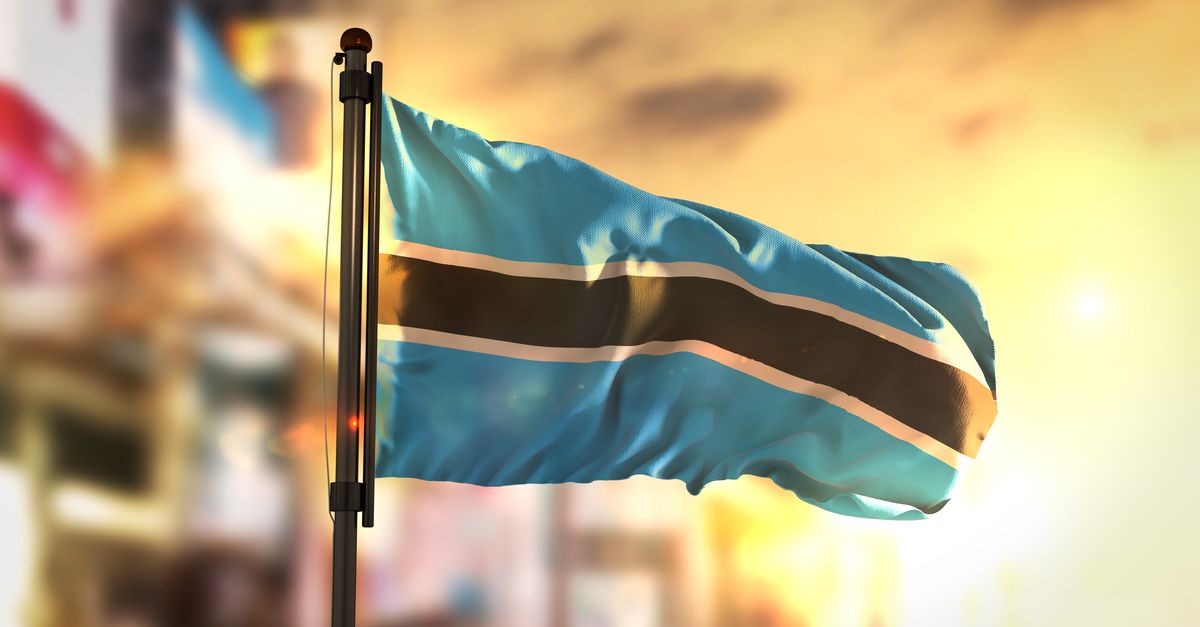Fact check: did botswana condemn trump's alleged 'shithole' slur toward african countries?
- Select a language for the TTS:
- UK English Female
- UK English Male
- US English Female
- US English Male
- Australian Female
- Australian Male
- Language selected: (auto detect) - EN

Play all audios:

Claim: Botswana condemned President Donald Trump's alleged remarks calling African nations "shithole countries." The Botswanan government condemned President Donald
Trump's purported remarks referring to African countries "shitholes," prompting some viewers to question whether a statement ostensibly issued by that country and spread via
social media was real. The government's statement was circulated both through both through Botswana's non-"verified" Twitter account and via their Facebook page, which is
directly linked to the country's official web site: > PRESS RELEASE |Botswana condemns remarks made by President Trump > @VensonMoitoi @MIACBW @OfficialMasisi
pic.twitter.com/16i7CUMR4x > > — Botswana Government (@BWGovernment) January 12, 2018 Botswana officials noted that they had "summoned" U.S. Ambassador Earl R. Miller
regarding the statements that President Trump had made during a meeting with lawmakers a day earlier, during which the chief executive allegedly exclaimed: "What do we want Haitians
here for? Why do we want all these people from Africa here? Why do we want all these people from shithole countries?" The statement from Botswana said (in part): > The Botswana
Government has also enquired from the US Government > through the Ambassador, to clarify if Botswana is regarded as a > "shithole" country given that there are Botswana
nationals residing > in the US, and also that some of Botswana may wish to visit the US. > > The Government of Botswana is wondering why President Trump, must > use this
descriptor and derogatory word, when talking about > countries with whom the US has had cordial and mutually beneficial > bilateral relations for so many years.* Officials in Ghana,
Haiti, Senegal, and South Africa have also reportedly called for meetings with U.S. diplomats because of the alleged comment. In a separate statement, the African Union, which represents all
55 countries on the continent, also condemned the reported remark and called for both a retraction and "an apology not only to the Africans but to all people of African descent around
the globe." Trump, who opened his presidential campaign in 2015 by calling some Mexican immigrants "rapists" and "criminals," reportedly made the remark during a
meeting concerning a deal that would allow for increased security along the U.S.-Mexico border, while also allowing for the continuation of the Deferred Action for Childhood Arrivals (DACA)
program. Around 700,000 people are currently enrolled in the DACA program, which allows enrollees to live and work in the U.S. for two-year periods. A federal judge ruled on 9 January 2018
that the Trump administration must accept renewal applications from enrollees. The president later said of his controversial remarks on Twitter that "The language used by me at the DACA
meeting was tough, but this was not the language used. What was really tough was the outlandish proposal made — a big setback for DACA!" He also specifically denied saying anything
insulting about Haiti: > Never said anything derogatory about Haitians other than Haiti is, > obviously, a very poor and troubled country. Never said "take them > out."
Made up by Dems. I have a wonderful relationship with > Haitians. Probably should record future meetings — unfortunately, > no trust! Sen. Dick Durbin (D-Illinois) has corroborated the
reports concerning Trump's alleged remarks, saying that he was at the meeting along with Sen. Lindsey Graham (R-South Carolina), who also objected to them. Graham released a statement
saying that he "said [his] piece directly" to Trump, but not addressing whether the president had insulted any countries. Senate colleague Tim Scott (R-South Carolina) said that
Graham told him that the reports concerning the insults were "basically accurate." We contacted Miller's office in Botswana seeking comment, as well as the Botswana embassy in
Washington D.C., but received no response prior to publication.